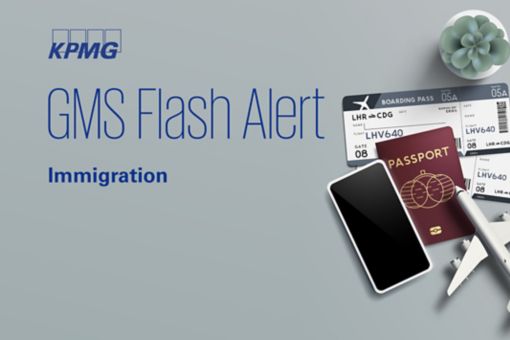United States - Travel from EU’s Schengen Area Suspended for 30 Days or Longer
US - Travel from EU’s Schengen Area Suspended
In addition to the existing travel restrictions in place due to ongoing COVID-19 pandemic, on March 11, 2020, President Donald Trump introduced a travel suspension from Europe to the United States, with some exceptions. This suspension goes into effect on Friday, March 13, 2020. Travelers who have been in the European Union’s (EU) Schengen Area within 14 days preceding their anticipated entry to the U.S. will be denied boarding an airplane. Read this newsletter for more details on the countries concerned, travel to/from such countries, and the exceptions.

In addition to the existing travel restrictions in place due to ongoing COVID-19 pandemic, on March 11, 2020, President Donald Trump introduced a travel suspension from Europe to the United States.1 This suspension goes into effect on Friday, March 13, 2020, at 11:59pm EDT. The unprecedented travel restrictions imposed by the White House will not impact the United Kingdom or Ireland. (For related coverage, see GMS Flash Alert 2020-050, March 6, 2020.)
Travelers who have been in the European Union’s (EU) Schengen Area within 14 days preceding their anticipated entry to the U.S. will be denied boarding an airplane. The Schengen countries include Austria, Belgium, Czech Republic, Denmark, Estonia, Finland, France, Germany, Greece, Hungary, Iceland, Italy, Latvia, Liechtenstein, Lithuania, Luxembourg, Malta, Netherlands, Norway, Poland, Portugal, Slovakia, Slovenia, Spain, Sweden, and Switzerland. The U.K. and Ireland are not part of the Schengen Area. Other EU countries not currently part of the Schengen Area are: Bulgaria, Croatia, Cyprus, and Romania.
WHY THIS MATTERS
This new travel ban will have considerable impact on U.S.-Schengen Area globally-mobile employees and could delay, if not prevent, cross-border transfers of such employees and their family members who are covered under the scope of these new rules. Employees and their families who may have received offers of international assignments to the U.S. and were making plans to relocate to the U.S. may experience some anxiety and inconvenience.
Employers with a global workforce must establish that their employees can continue to travel to the U.S. without disrupting business operations and without prejudice to the health and safety of their workers.
Moreover, this will affect employees who planned to travel and renew their visas abroad in the Schengen countries.
Are There Any Exceptions?
U.S. citizens, lawful permanent residents, spouses, children, siblings, parents of U.S. citizens and legal residents, government employees, crew-members, members of the U.S. Armed Forces and their relatives, along with foreign government representatives will not be subject to the suspension. Additional exceptions exist and ongoing reports indicate that more changes can be expected.
Those exempted individuals would still be required to follow a strict process when returning to the U.S. and self-quarantine for a period of 14 days.
The White House confirmed that the travel restriction will not apply to goods and cargo coming from the EU.
KPMG NOTE
Outbound Travel
Any nonimmigrant visa holders intending to travel to the Schengen countries should re-evaluate the necessity of their trip as they would be unable to re-enter during the suspension period and potentially beyond.
Limiting Travel Due to Potential Expansion of Suspension
Given the fluidity of the circumstances and the need to adopt rapid measures, it may be prudent to remain in the U.S. and avoid international travel where possible.
Existing Consular Appointments in the Schengen Countries
Employees who planned to travel and renew their visas abroad in the Schengen countries should consider filing extensions of their status via United States Citizenship and Immigration Services (USCIS). In addition, limitations on consular processing may be anticipated as shown in certain jurisdictions already.
Impact of Self-Quarantine on Your Business
Those exempted from the suspension but returning from the affected countries will be required to follow a 14-day self-quarantine. Employers must assess how such a self-quarantine will affect their business and take measures to avoid business disruption where possible.
We Are Monitoring the Situation
Our office is tracking these matters closely. We will endeavor to keep readers of GMS Flash Alert posted on any important developments as and when they occur.
FOOTNOTE
1 See the Presidential Proclamation issued on March 11, 2020.
See the March 11 Press Release from the Department of Homeland Security, “Homeland Security Acting Secretary Chad F. Wolf’s Statement on Presidential Proclamation To Protect the Homeland from Travel-Related Coronavirus Spread.”
RELATED LINKS
* Please note that KPMG LLP (U.S.) does not provide any immigration services or legal services. However, KPMG Law LLP in Canada can assist clients with U.S. immigration matters.
The information contained in this newsletter was submitted by the KPMG International member firm in Canada.
SUBSCRIBE
To subscribe to GMS Flash Alert, fill out the subscription form.
© 2024 KPMG LLP, a Canadian limited liability partnership and a member firm of the KPMG network of independent member firms affiliated with KPMG International Cooperative (“KPMG International”), a Swiss entity. All rights reserved.
GMS Flash Alert is a Global Mobility Services publication of the KPMG LLP Washington National Tax practice. The KPMG name and logo are trademarks used under license by the independent member firms of the KPMG global organization. KPMG International Limited is a private English company limited by guarantee and does not provide services to clients. No member firm has any authority to obligate or bind KPMG International or any other member firm vis-à-vis third parties, nor does KPMG International have any such authority to obligate or bind any member firm. The information contained herein is of a general nature and is not intended to address the circumstances of any particular individual or entity. Although we endeavor to provide accurate and timely information, there can be no guarantee that such information is accurate as of the date it is received or that it will continue to be accurate in the future. No one should act on such information without appropriate professional advice after a thorough examination of the particular situation.
